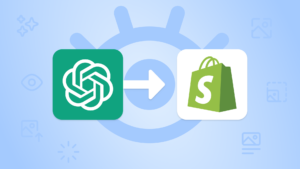13 Best n8n Alternatives for Workflow Automation in 2026
n8n is a popular open-source workflow automation tool that enables users to connect various apps and automate repetitive tasks using a visual builder. With flexible integrations and a self-hosted option, it appeals to developers and technical teams looking for control and customization. The Berlin-based company has seen explosive growth in the AI automation space, recently raising $180 million in Series C funding at a $2.5 billion valuation, backed by investors including Accel and NVIDIA’s venture arm.
However, many users still search for n8n alternatives due to its fair-code licensing model, complex UI for beginners, limited scalability, or lack of certain integrations. Whether you’re seeking an open-source automation tool, a cloud-native solution, or an AI-powered assistant, the right alternative can deliver better ease of use, enterprise features, or more transparent pricing.
In this guide, we’ll explore the best n8n alternatives available in 2026, including both self-hosted and cloud-based platforms.
In this article:
Comparing features, flexibility, and pricing
When evaluating n8n alternatives, consider these key dimensions:
| Feature | Open Source | Cloud-Based | AI-Powered |
| Control & Customization | High | Moderate | Moderate |
| Ease of Use | Low to Moderate | High | High |
| Setup Time | Long | Fast | Fast |
| AI Features | Minimal | Varies | Advanced |
| Pricing Models | Free / Self-hosted | Freemium / Usage-based | Freemium / Premium |
🏆 Best for Developers: Make, Pipedream, Activepieces
🏆 Best for Non-Developers: Zapier, MESA
🏆 Best for Data Teams: Apache Airflow
🏆 Best for AI Automation: MESA, Lindy, Relay.app
Choosing between cloud vs. open-source automation platforms
Before selecting an alternative to n8n, it’s important to determine whether a self-hosted or cloud-based platform aligns better with your team’s needs.
Open-source and self-hosted automation tools like Huginn, StackStorm, and Activepieces offer full control over your data and infrastructure. These are ideal for teams with engineering resources that value customization, privacy, and extensibility.
Cloud-based workflow automation platforms like Zapier, Make, and MESA prioritize speed, ease of use, and scalability. With no infrastructure to manage, they’re perfect for startups, ecommerce brands, and growing businesses looking for agility.
Key Considerations:
- Self-hosting pros: Full data ownership, advanced customization, and freedom from vendor lock-in.
- Cloud pros: Quick setup, built-in support, automatic updates, and scalable pricing.
Choosing the right category comes down to your technical capacity, compliance needs, and how complex your automation workflows are.
Open-source and self-hosted alternatives to n8n
If you’re specifically looking for n8n alternatives that are open-source or self-hostable, these platforms provide flexibility without sacrificing functionality.
1. Huginn
https://github.com/huginn/huginn?tab=readme-ov-file

A long-standing open-source automation tool written in Ruby, Huginn lets you build agents that monitor and scrape data. Originally inspired by IFTTT, it has evolved with a strong GitHub community and dozens of pre-built agent types. It’s best suited for technical users who need self-hosted data monitoring and event-driven automation without commercial platform constraints.
🏆 Best for: Technical users needing custom monitoring and scripting.
✅ Pros: Fully open-source (MIT License), active community.
❌ Cons: Steep learning curve, less modern UI.
2. StackStorm

An event-driven platform focused on DevOps and IT automation, StackStorm orchestrates workflows across your entire infrastructure stack. It allows you to define workflows using Python, YAML, and rules-based triggers for incident response and remediation tasks. Best suited for DevOps teams and SREs, it offers enterprise-grade scalability with ChatOps and infrastructure orchestration support.
🏆 Best for: Infrastructure orchestration and system-level automation.
✅ Pros: Highly extensible, strong for enterprise IT use cases.
❌ Cons: Requires deep technical expertise.
3. Activepieces

A modern open-source automation builder with a visual interface similar to n8n but featuring a more intuitive UI. Built with MIT licensing and transparent development practices, Activepieces offers no commercial restrictions on self-hosted or cloud deployments. It’s rapidly gaining traction in the developer community with frequent updates, 100+ app integrations, and templates available.
🏆 Best for: Developers and startups looking for a free n8n alternative.
✅ Pros: Clean UI, growing library of integrations, Apache 2.0 license.
❌ Cons: Smaller ecosystem (for now).
4. Node-RED

Originally developed by IBM, Node-RED is a flow-based programming tool especially popular in IoT and home automation contexts. It features a browser-based visual editor and runs on Node.js, making deployment lightweight on devices like Raspberry Pi. With thousands of community-built nodes available, Node-RED excels at connecting hardware devices, APIs, and online services together.
🏆 Best for: Hardware automation, custom APIs, and edge computing.
✅ Pros: Lightweight, wide hardware support.
❌ Cons: Limited SaaS integrations out of the box.
5. Apache Airflow

A robust platform for orchestrating complex data workflows, primarily used by data engineers for scheduling and monitoring ETL pipelines. It offers programmatic workflow definition using Python code, enabling version control, testing, and dynamic pipeline generation at scale. Best suited for data teams managing batch processing, machine learning pipelines, and multi-step data transformations across distributed systems.
🏆 Best for: Data-centric workflows that require scheduling and dependency management.
✅ Pros: Powerful DAG (directed acyclic graph) support, strong in data engineering.
❌ Cons: Not ideal for general business automations.
6. Pipedream

A developer-centric automation platform that lets you build workflows using Node.js, Python, APIs, and 2,000+ pre-built app integrations. Pipedream offers event-driven workflows with built-in triggers, real-time execution logs, and a generous free tier for developers. It provides both cloud-hosted convenience and self-hosted options, with version control, CLI tools, and collaborative workspace features included.
🏆 Best for: Developers looking for serverless automation with code flexibility.
✅ Pros: Free tier, native coding support, GitHub integration.
❌ Cons: Steeper learning curve for non-coders.
AI-powered automation platforms
These next-generation tools combine automation with natural language processing, AI suggestions, and predictive actions to make workflows smarter and more dynamic.
7. MESA

An AI-powered automation platform built for e-commerce that intelligently automates order routing, inventory sync, and customer data updates. MESA offers an AI assistant to understand your workflows and suggest optimizations, eliminating the need for complex coding. Popular with Shopify merchants, it offers pre-built templates for common tasks like fulfillment, customer notifications, and multi-channel sync.
🏆 Best for: Busy professionals who want a smart AI assistant to help get more tasks done quickly.
✅ Pros: Deep ecommerce integrations, AI-powered assistant, no-code builder.
❌ Cons: Fewer connectors than other solutions.
Popular workflows include:
MESA Template ID
create-unique-discount-codes-for-new-shopify-customers
MESA Template ID
find-social-media-accounts-email-address
MESA Template ID
write-shopify-product-descriptions-with-ai
8. Lindy

An AI-enhanced platform for business operations, Lindy automates scheduling, email outreach, follow-ups, and administrative tasks using conversational AI. It acts as a virtual assistant that learns your preferences and handles routine workflows like meeting coordination and inbox management. Best suited for busy professionals and small teams, Lindy integrates with calendar, email, and productivity tools automatically.
🏆 Best for: Small teams or solopreneurs automating communication-heavy workflows.
✅ Pros: Natural language prompts, works with calendars, email, and CRM tools.
❌ Cons: Still maturing in terms of integrations.
9. Relay.app

Relay.app combines workflow automation with human-in-the-loop collaboration, enabling teams to add approval steps and manual review points seamlessly. AI-powered suggestions help build workflows faster by recommending connections, next steps, and optimizations based on your existing data. Ideal for teams requiring oversight in automated processes.
🏆 Best for: Teams balancing automation with manual approvals or inputs.
✅ Pros: Hybrid workflows, collaboration-friendly, AI-assisted decisions.
❌ Cons: Limited brand awareness compared to Zapier or Make.
Cloud-based workflow automation platforms
For those who prefer hosted solutions with faster setup and broader app coverage, these cloud-based n8n alternatives deliver strong performance with minimal infrastructure concerns.
10. Zapier

The gold standard in no-code automation, Zapier supports over 7,000 app integrations with an intuitive drag-and-drop interface. Pre-built templates called Zaps enable quick workflow setup for common tasks like lead capture, email marketing, and CRM sync. Best for small businesses and non-technical teams, it offers scalable pricing for growing automation needs.
🏆 Best for: Marketers, ecommerce managers, and SMBs needing quick automations.
✅ Pros: Huge app library, intuitive interface, templates.
❌ Cons: Can get expensive at scale.
11. Make (formerly Integromat)

Make offers a more advanced visual builder with modular logic blocks, real-time workflow execution, and greater flexibility for complex automations. Formerly known as Integromat, it supports 1,500+ integrations with powerful features like data transformation, error handling, and conditional routing. Ideal for technical users and agencies, Make provides granular control with a generous free tier and pay-per-operation pricing.
🏆 Best for: Power users and teams that need more logic-driven flows.
✅ Pros: Detailed flow control, affordable pricing tiers.
❌ Cons: Slightly steeper learning curve than Zapier.
Enterprise automation tools
If you’re scaling automation across departments, these enterprise-grade n8n alternatives offer robust governance and compliance features.
12. Tray.ai

A low-code automation platform designed for enterprise teams building large-scale workflows, custom integrations, and complex business processes at scale. Tray.ai offers visual workflow builders with advanced data transformation, API connectivity, and governance features for regulated industries like healthcare. Popular with operations teams and IT departments, it provides enterprise-grade security, compliance controls, and scalability for mission-critical automations.
🏆 Best for: Mid-size to large enterprises needing custom automation.
✅ Pros: API-first, supports multi-step logic, strong customer support.
❌ Cons: Requires onboarding time and technical know-how.
13. Workato

Workato combines integration, automation, and data syncing in a single enterprise platform with 1,000+ pre-built connectors and recipes. It offers AI-powered workflow recommendations, recipe building assistance, and enterprise-grade governance controls for compliance and security. Popular with Fortune 500 companies, Workato handles complex multi-app integrations, IT automation, and business process orchestration at scale.
🏆 Best for: Enterprises with compliance requirements and cross-functional automation needs.
✅ Pros: SOC 2 certified, powerful mapping tools, AI logic.
❌ Cons: Premium pricing.
Frequently asked questions
n8n uses a “fair-code” license (rather than fully open-source), which restricts commercial use without a paid license. While the source code is viewable, businesses that want to commercialize or resell solutions built on n8n must pay licensing fees. Fully open-source alternatives like Huginn or Activepieces offer more permissive licenses (MIT, Apache 2.0) with fewer commercial restrictions.
AI-powered platforms simplify workflow creation with smart suggestions, auto-generated steps, and natural language interfaces — ideal for users without technical backgrounds. In 2026, many tools now support AI agents that can make decisions, handle exceptions, and adapt workflows dynamically. MESA offers AI-driven ecommerce automation, while Lindy focuses on personal AI assistants. Traditional builders like Zapier and Make offer more control but require manual configuration of each step.
Top alternatives in 2026 include Zapier, Make, MESA, Huginn, Activepieces, and StackStorm — depending on your use case.
Yes, platforms like Huginn, StackStorm, Activepieces, and Node-RED offer free, open-source solutions with self-hosting support.
Zapier, MESA, and Make are beginner-friendly with drag-and-drop builders and pre-made templates.
No — Make and MESA are cloud-native platforms. For self-hosting, consider Huginn, Activepieces, or even a self-hosted version of n8n.
For enterprise needs, consider Make (formerly Integromat) for complex logic and high execution volumes, Workato for enterprise-grade security and governance, or Tines for security operations. StackStorm excels at event-driven automation at scale. Cloud platforms like Zapier and Make offer better reliability and support than self-hosted options for mission-critical workflows.







